As a BetterHelp affiliate, we receive compensation from BetterHelp if you purchase products or services through the links provided
Social anxiety isn’t exclusive to introverts, as is commonly perceived. Quite the contrary, extroverts can experience this form of anxiety, too. If you’re an extrovert with social anxiety, you know the feeling: you crave social interaction, but the fear of being judged or not living up to expectations can be paralyzing. It’s a puzzling and often misunderstood dynamic.
The experience of social anxiety involves intense nervousness or fear of social situations where you could be scrutinized. This tension is particularly conflicting for extroverts, who typically gain energy from being around others. As an extrovert, you might feel drawn to social events yet simultaneously dread them, creating an internal struggle that can be challenging to navigate.
Key Takeaways
- Extroverts with social anxiety crave social interaction but may also fear judgment or scrutiny in social settings.
- Social anxiety involves intense nervousness and is a condition that can affect both extroverts and introverts, challenging the typical stereotype.
- Understanding and addressing this paradox is essential for improving mental health and emotional well-being for extroverts facing social anxiety.
Understanding Social Anxiety
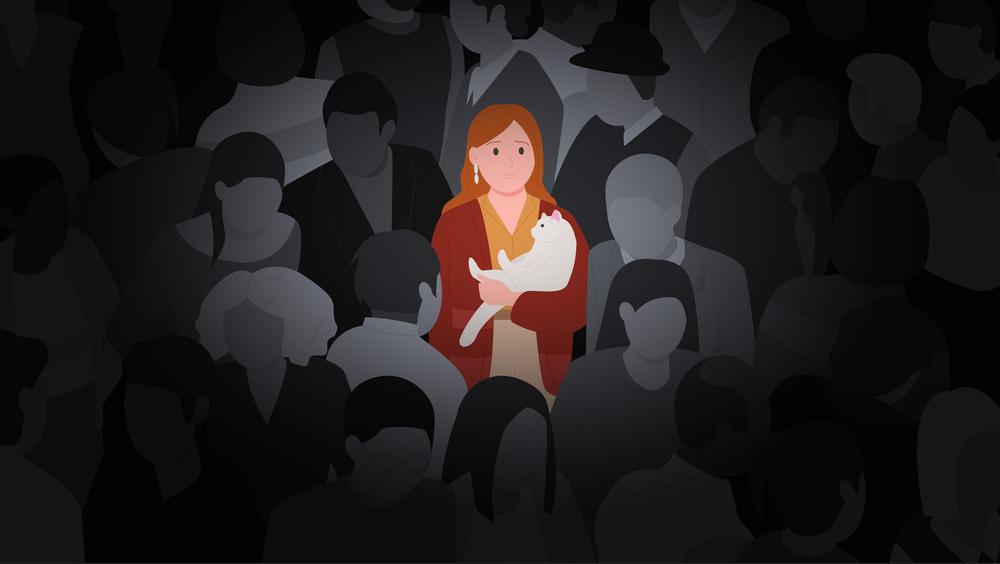 Social anxiety disorder is more than just shyness; it’s a persistent fear that affects your everyday interactions. It’s important to grasp what this disorder entails and how to recognize its presence.
Social anxiety disorder is more than just shyness; it’s a persistent fear that affects your everyday interactions. It’s important to grasp what this disorder entails and how to recognize its presence.
Defining Social Anxiety Disorder
Social anxiety disorder, also known as social phobia, is a condition characterized by an intense fear of social situations where you might be judged or scrutinized by others. It’s not simply being nervous; it’s a fear that persists and interferes with your life.
- Key takeaway: Social anxiety is a clinical condition that goes beyond occasional nervousness and can significantly disrupt daily life.
Symptoms of Social Anxiety
People with social anxiety disorder may experience a range of symptoms in social settings, including:
Physical Symptoms
- Rapid heartbeat
- Excessive sweating
- Trembling
- Upset stomach or nausea
- Difficulty speaking
Emotional Symptoms
- Intense fear of being judged by others
- Worry about embarrassing oneself
- Avoidance of social situations
- Heightened self-consciousness
Key takeaway: Recognizing the symptoms, both physical and emotional, is the first step to managing social anxiety.
Common Misconceptions
There are several misunderstandings about social anxiety disorder:
- It’s just shyness: Unlike shyness, social anxiety disorder is debilitating and hampers one’s ability to function in social contexts.
- It doesn’t affect personal relationships: Social anxiety can strain personal connections as sufferers might withdraw from social interactions.
- You can just snap out of it: Overcoming social anxiety often requires therapy or medication. It’s an actual condition that can’t be turned off at will.
Key takeaway: Dispelling myths is crucial for both those with social anxiety and those looking to support them.
The Extroverted Personality
 Extroverts are often seen as the life of the party, drawing energy from social interactions. Understanding their personality traits can enlighten both extroverts and those around them.
Extroverts are often seen as the life of the party, drawing energy from social interactions. Understanding their personality traits can enlighten both extroverts and those around them.
Characteristics of Extroverts
- Social Butterflies: You tend to thrive in social settings, seeking out interactions as a significant energy source.
- Openness to Experiences: Your sense of adventure often means you’re open to trying new things, leading to a rich tapestry of experiences.
- Talkative Nature: Striking up conversations comes naturally to you, and you often enjoy engaging in dialogue with others.
Extroverts are typically noted for their:
- Enthusiasm: You display a warm and positive demeanor that can be contagious.
- Assertiveness: In group settings, you’re likely willing to take charge and voice your opinions.
Extraversion Spectrum
It’s essential to recognize that extraversion isn’t a one-size-fits-all label. It spans a spectrum:
- Highly Extroverted: Individuals who seek constant social stimulation are often described as outgoing or gregarious.
- Moderately Extroverted: You could prefer regular social interaction but appreciate some alone time.
The key takeaway: Your extroverted personality shines in how you engage with the world and draw energy from external stimuli. Embrace your outgoing nature while acknowledging the wide spectrum of extraversion that exists.
Anxiety and Personality Dynamics
This section explores how social anxiety manifests differently between introverts and extroverts, mainly focusing on the intriguing case of the anxious extrovert.
Introverts vs Extroverts
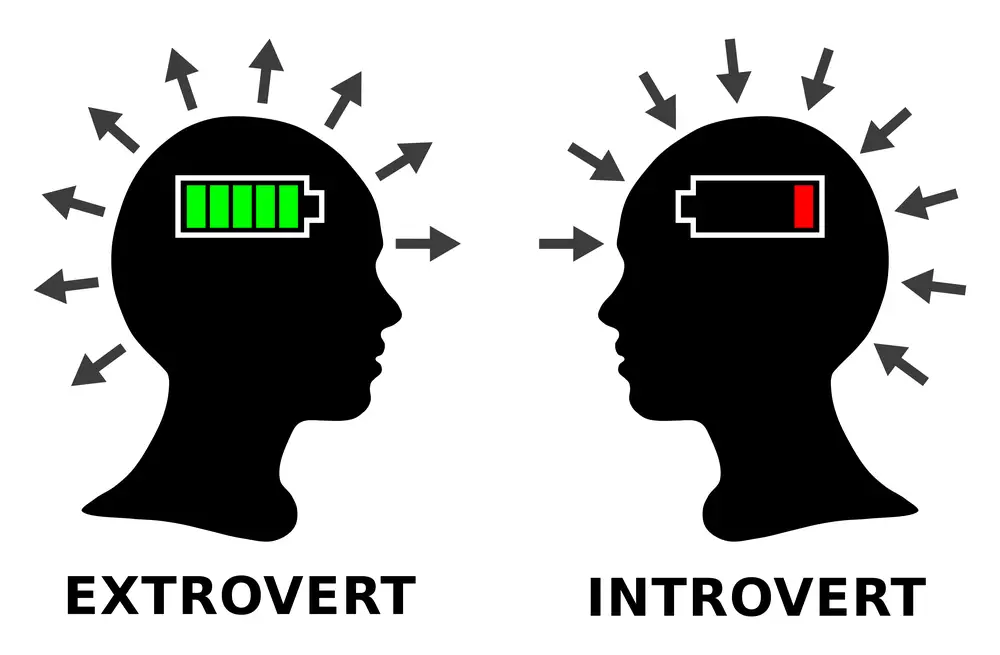
Did you know that introverts and extroverts may experience social anxiety in distinct ways? Here’s a snapshot:
- Introverts tend to recharge by spending time alone and may naturally avoid social situations, which might be mistaken for social anxiety.
- Extroverts, on the other hand, draw energy from social interactions but can still suffer from anxiety, which might be less visible to others.
Understanding these variations in personality helps reveal the complexity behind social anxiety symptoms.
The Anxious Extrovert
If you’re an extroverted person, you might be surprised to find that anxiety can affect you, too. Consider these points:
- Social Anxiety: Regardless of enjoying the company of others, you might feel intense fear about social judgment or embarrassment.
- Anxiety Symptoms: These can include heart palpitations, trembling, or excessive sweating, even when you’re outwardly engaging with people.
Keep in mind that being extroverted doesn’t make you immune to social anxiety—it just means your struggle might not be as apparent. Recognizing this can be the first step toward finding the right support and strategies to manage your anxiety.
The Paradox of the Shy Extrovert
You might think extroverts are always the life of the party, but sometimes they face their battles with shyness and social anxiety. This unique dynamic can be confusing and disheartening for those who live it.
Shyness vs Social Anxiety
 Shyness is typically characterized by awkwardness or apprehension when approaching or being approached by others. In contrast, social anxiety is more intense; it’s often the fear of being judged or humiliated in social situations, which can lead to severe distress and avoidance behaviors.
Shyness is typically characterized by awkwardness or apprehension when approaching or being approached by others. In contrast, social anxiety is more intense; it’s often the fear of being judged or humiliated in social situations, which can lead to severe distress and avoidance behaviors.
- Shyness
- Discomfort in social settings
- Hesitance to engage with others
- Social Anxiety
- Intense fear of negative judgment
- Avoidance of social interactions to prevent embarrassment
Key Takeaway: Shyness is fleeting discomfort, whereas social anxiety is a persistent dread of social judgment.
The Shy Extrovert Experience
For a shy extrovert, there’s a constant tug-of-war between the longing for social connection and the pressure that inhibits it. Despite their inclination toward sociability, shy extroverts might struggle with a lack of confidence in social settings, fearing an embarrassing scenario.
- Feeling Judged: Worrying about others’ opinions can overshadow the natural extroverted desire to mingle.
- Pressure to Perform: Social events can feel like a stage, with the shy extrovert feeling pressured to meet expectations.
- Seeking Connection: There’s still an inherent need to be around others and form meaningful relationships.
Key Takeaway: As a shy extrovert, you’re not alone in feeling the push and pull between wanting connection and fearing social scrutiny.
Social Interaction Challenges
Even if you’re generally outgoing, the thought of social interaction can sometimes trigger anxiety. Your extroverted nature might push you towards gatherings. Still, an internal struggle could hold you back, resulting in a complex battle between your desire for interaction and the anxiety it provokes.
Struggling with Gatherings
- Overwhelm: Stepping into a room full of people can be daunting. You may feel:
- A sense of being swallowed by the crowd.
- Heightened self-consciousness about how you’re perceived.
- Complex Dynamics: Group interactions often involve:
- Subtle social cues and dynamics that can be hard to navigate.
- A fear of being judged, adding pressure to the social mix.
Key Takeaway: If gatherings make you anxious, try arriving early when the crowd is smaller, making it easier to acclimate as people arrive.
Performance Pressure
- Expectation vs. Reality: Your extroverted side sets an expectation to be the life of the party, leading to:
- Stress about living up to that role.
- Fear that you won’t meet your own or others’ expectations.
- Public Exhibition: Situations like public speaking can amplify anxiety due to:
- The fear of judgment from every corner of the room.
- The pressure to perform flawlessly in the spotlight.
Key Takeaway: To ease performance pressure, remember that everyone makes mistakes. What’s important is your courage to stand up and speak, not the occasional stumble.
Coping Mechanisms and Strategies
When you’re an extrovert with social anxiety, finding balance is key. Your energy blooms around others, but anxiety can make social situations stressful. Here are specific ways to manage those anxious feelings and regain control.
Mindfulness and Meditation
Mindfulness helps anchor you in the present, shifting focus away from distressing thoughts. Start simple:
- Daily Practice: Dedicate a few minutes to guided meditation each day.
- Yoga: Combine movement with breath control to foster mindfulness.
- Regular Breaks: Brief moments of mindfulness throughout your day can be refreshing.
Tip: Apps or online videos can provide easy-to-follow guided meditation routines.
Professional Help and Therapies
Leaning on professional help can give you tools specific to your needs. Here’s what to explore:
- Cognitive Behavioral Therapy (CBT): Tailored to break the cycle of anxiety by changing thought patterns.
- Support Groups: Sharing experiences with others who understand can be relieving and empowering.
- Continued Therapy: Therapy is a journey, not a quick fix—commit to the process.
Remember: Seeking help is a sign of strength, not weakness.
Self-Help Techniques
Self-help methods are about what you can do for yourself, your toolkit for challenging times. Build it with:
- Relaxation Strategies: Deep breathing exercises or progressive muscle relaxation can lower anxiety in the moment.
- Preparation: Anticipate social situations and plan responses or topics of conversation.
- Positive Affirmations: Encourage yourself with kind, reassuring words.
Key Takeaway: Small, consistent self-help efforts build resilience against social anxiety.
Mental Health and Emotional Well-being
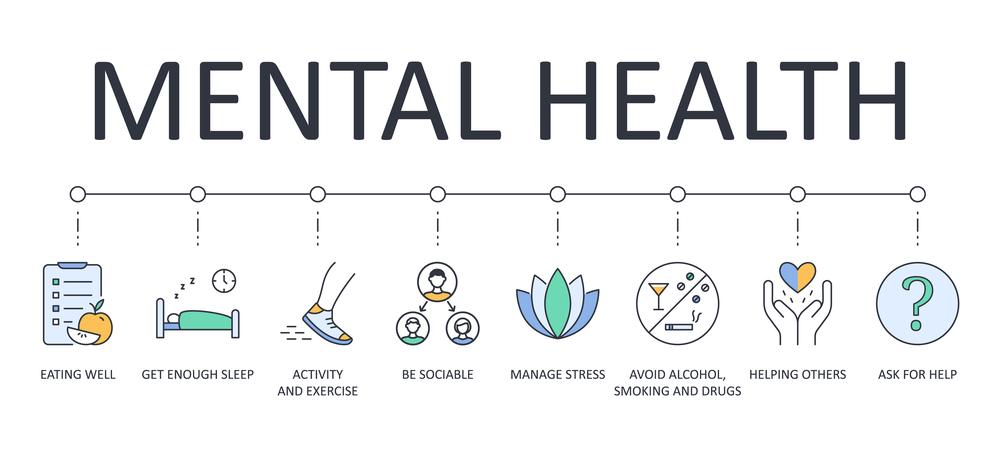 Your mental health plays a pivotal role in how you interact with the world around you, even if you’re an extrovert who enjoys being around others. It’s common to face challenges like depression and anxiety, but remember, seeking support can help you find a healthy balance.
Your mental health plays a pivotal role in how you interact with the world around you, even if you’re an extrovert who enjoys being around others. It’s common to face challenges like depression and anxiety, but remember, seeking support can help you find a healthy balance.
Depression and Anxiety
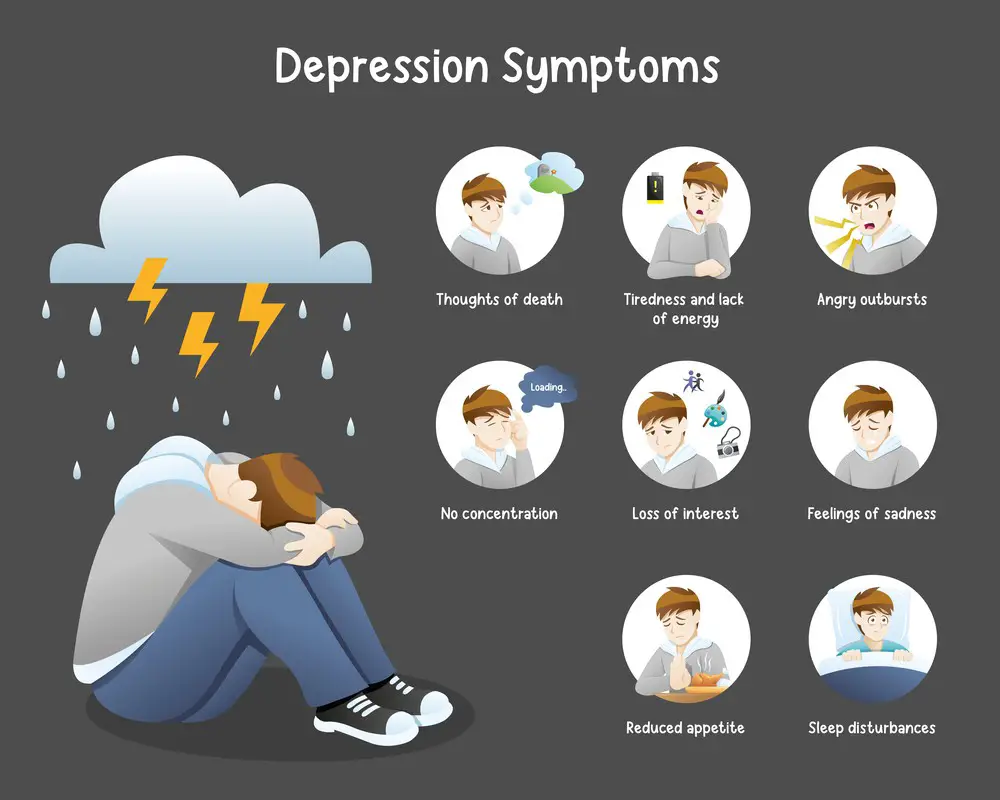
- Depression: It can weigh you down with feelings of sadness or loss of interest in activities you once loved, even among the most pleasant individuals.
- Anxiety: While typical for everyone, extroverts with social anxiety experience apprehension about social interactions, which contrasts with their outgoing nature.
Strategies for managing these feelings:
- Recognize the signs early and understand that feeling this way is okay.
- Develop a routine that includes activities that boost your mood and reduce stress.
 Finding Balance and Support
Finding Balance and Support
Finding balance as an extrovert with social anxiety is a delicate process that involves self-awareness and external assistance.
Here’s what you can do:
- Lean on your social circle: Share your feelings with friends or family who can offer emotional support.
- Professional help: Don’t hesitate to reach out to a mental health professional if anxiety interferes with your daily life.
Key takeaway: Create a support system, and don’t be afraid to use it. Your emotional well-being is as important as your physical health.
Social Anxiety in the Age of Isolation
The social fabric of our lives experienced an unprecedented transformation during the COVID-19 pandemic, leaving even the most outgoing individuals wrestling with the challenges of social anxiety amidst prolonged spells of isolation.
Impact of the Pandemic
- Isolation: As social distances grew physical, the COVID-19 pandemic ushered in a steep increase in isolation.
- Statistics: According to the U.S. Census Bureau, a significant portion of the population reported increased feelings of anxiety and loneliness.
- Mental Health: Data from the National Center for Health Statistics highlights the pandemic’s profound impact on mental health, demonstrating a spike in social anxiety symptoms.
Key takeaway: If you’ve been feeling increased anxiety during the pandemic isolation, you’re not alone; it’s a common thread among many.
Re-entry into Social Settings
- Strategy: Taking gradual steps can ease the transition back into social interactions.
- Start small, with close friends and familiar settings.
- Create a comfort checklist for social situations.
- Emotional Responses: Expect to feel a mix of excitement and nervousness.
- Adjustment Period: Be kind to yourself; you might need time to readjust to the pace of regular social activities.
Key takeaway: Be patient with yourself as you navigate re-entry into social settings, and remember that readjustment is a process.
Navigating Social Life

You might find it puzzling, but being an extrovert doesn’t always mean social interactions are easy. If you’re an extrovert with social anxiety, the drive for social engagement is often at odds with the fear of embarrassment. Here’s how you can approach the key aspects of your social life without feeling overwhelmed.
Making and Maintaining Friendships
- Starting Conversations: Begin with a warm smile and a simple greeting. This can help set a positive tone and make opening up more manageable.
- Common Interests: Talk about shared interests to establish connections. By finding common ground, you can foster meaningful conversations that help friendships blossom.
- Consistency is Key: Maintain your friendships by checking in regularly. Staying in touch can make all the difference even if it’s just a quick text or comment on social media.
Key Takeaway: Remember that genuine connections stem from being yourself. It’s okay to share that you’re nervous; it might even make your new acquaintances feel more at ease!
Attending Social Events
- Prepare Mentally: Before heading to parties or group settings, prepare mentally. Visualize positive interactions and remind yourself that you’re there to enjoy.
- Set Realistic Goals: Aim to connect with just one or two people rather than feeling pressured to charm the entire room.
- Escape Plan: Having a way to step back can alleviate pressure. Plan brief breaks to manage your anxiety and recharge.
Key Takeaway: It’s OK to step away and regroup when necessary. Attending social events is about enjoying yourself, not performing.
By embracing these strategies and acknowledging your feelings, you can navigate your social life more easily and confidently.
The Role of Research and Experts
Understanding extroversion and social anxiety requires insights from experts and evidence through research. These frameworks help decode the unique experiences you may encounter.
Analytical Psychology Insights
Carl Gustav Jung was pivotal in the field of analytical psychology. His work provides a lens to understand:
- Personality Types: Jung’s theory categorizes personalities into types. This offers perspective on why you might be outgoing yet experience social anxiety.
- Inner Conflicts: Jung identified how opposing forces within the psyche could lead to internal strife, explaining the coexistence of extroverted traits and social anxiety.
Jung’s concepts, while historical, have influenced modern tools, like the Myers-Briggs Type Indicator (MBTI), which the Myers & Briggs Foundation maintains.
Current Research Trends
Current research builds on Jung’s ideas, focusing on:
- Evidence-based Analysis:
- Studies exploring the genetic and environmental factors contributing to personality and anxiety.
- Relationship between extroversion and social anxiety, showing that being sociable doesn’t make one immune to anxiety.
- Psychological Strategies:
- Interventions designed to help extroverts manage social anxiety.
- Effectiveness of therapy and social skills training.
Key takeaway: Your personal experience is layered, and understanding it might require peering through historical insights and modern research findings.
Finding Your Way Through the Fog: When to Seek Help for Social Anxiety
 Realizing you’re an extrovert with social anxiety can feel like being caught in a contradiction. You crave the energy of social interactions yet dread the anxiety they stir within you. It’s a complex inner battle, but recognizing when to seek help is crucial to reclaiming your joy and confidence in social settings. Here are some signs that it’s time to consider reaching out for professional guidance and what that path might look like for you.
Realizing you’re an extrovert with social anxiety can feel like being caught in a contradiction. You crave the energy of social interactions yet dread the anxiety they stir within you. It’s a complex inner battle, but recognizing when to seek help is crucial to reclaiming your joy and confidence in social settings. Here are some signs that it’s time to consider reaching out for professional guidance and what that path might look like for you.
Signs It’s Time to Seek Help:
- Persistent Worry: If you find yourself consumed by anxiety about social situations long before they happen, it might be time to seek help. This constant worry can hinder your ability to enjoy life and take a toll on your mental health.
- Avoiding Social Situations: When the fear of socializing leads you to avoid gatherings or events you’d typically enjoy, it’s a clear sign that your anxiety is controlling your actions.
- Physical Symptoms: Social anxiety isn’t just a mental battle; it can manifest physically. Red flags include stomachaches, rapid heartbeat, or excessive sweating when thinking about or attending social events.
- Impact on Daily Life: If social anxiety starts to affect your performance at work, school, or personal relationships, it’s crucial to address it. When your quality of life diminishes, seeking help is imperative.
Medication or Counseling: Which Is Recommended?
The journey to managing social anxiety varies from person to person. Here’s a brief overview:
- Counseling: Cognitive Behavioral Therapy (CBT) is highly effective for social anxiety. It helps you identify and challenge negative thought patterns, gradually exposing you to social situations in a controlled manner to build confidence.
- Medication: In some cases, medication may be recommended, especially if your anxiety is severe. SSRIs (selective serotonin reuptake inhibitors) are commonly prescribed. However, medication is often most effective when combined with counseling.
Setting Goals and Recognizing Progress
Setting realistic goals is a powerful way to manage social anxiety. Here’s how to approach it:
- Start Small: Begin with achievable goals, like saying hello to a neighbor or asking a question in a meeting. Small victories can build your confidence over time.
- Celebrate Success: Recognize and celebrate your progress, no matter how minor it may seem. Each step forward is a victory against your anxiety.
- Be Patient: Progress may be slow and non-linear. It’s normal to have good days and bad days. Patience and persistence are key.
Recognizing when to seek help is a sign of strength, not weakness. If you’re experiencing signs of social anxiety that interfere with your happiness and daily life, reaching out for professional support can be the first step toward a more confident and fulfilling social life. Whether through counseling, medication, or a combination of both, it’s possible to navigate the complexities of being an extrovert with social anxiety and emerge stronger on the other side.
Frequently Asked Questions
The questions below touch upon the unique experiences of extroverts with social anxiety and provide helpful insights into their challenges and coping strategies.
How can social anxiety manifest in people who are extroverted?
Extroverts with social anxiety might appear outgoing but often feel intense nervousness or fear during social interactions. You might find them participating in events but perhaps feeling anxious about being judged or embarrassed.
What are the key differences between introverted and extroverted individuals with social anxiety?
While introverts may naturally avoid social situations, extroverts with social anxiety seek out social contact but struggle with anxiety in those settings. The key difference lies in their approach to socialization despite similar feelings of anxiety.
Are there specific tests to identify social anxiety in extroverts?
Yes, psychologists use standardized tests such as the Social Phobia Inventory (SPIN) to diagnose social anxiety in both extroverts and introverts.
What strategies can extroverts use to cope with social anxiety?
Extroverts can cope with social anxiety by gradually facing their fears, practicing mindfulness, and strengthening their social skills. It’s important to take small steps to build confidence in social situations.
Is it common for extroverts to experience feelings of shyness or awkwardness?
It’s not uncommon for extroverts to feel shy or awkward. Social anxiety can affect anyone, and even outgoing individuals might sometimes feel uncertain in social scenarios.
What are effective treatments for an extrovert struggling with social anxiety?
Treatments include cognitive-behavioral therapy (CBT), medication, and support groups. Always consult a healthcare professional to find the best treatment plan.
- Stress Management: What is the Relationship Between Stress and Addiction? - June 28, 2024
- Exploring Techniques to Maintain a Healthy Lifestyle without Drugs - May 28, 2024
- How Acupuncture Helps Treat Chronic Fatigue Syndrome - May 28, 2024
This site contains affiliate links to products. We will receive a commission for purchases made through these links.


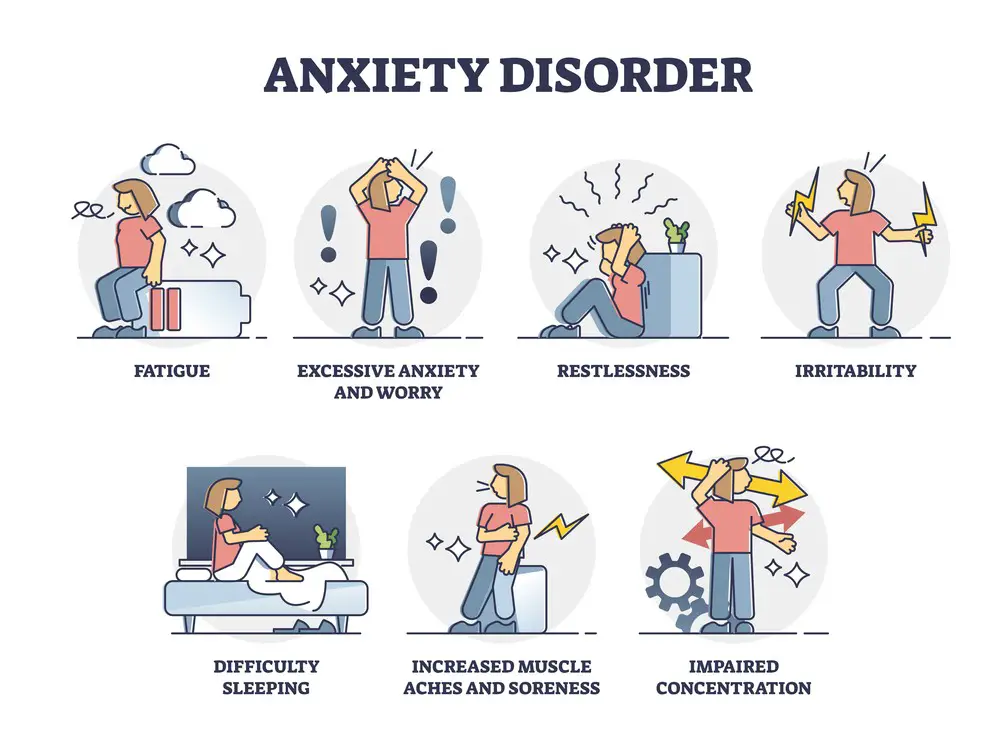 Finding Balance and Support
Finding Balance and Support

